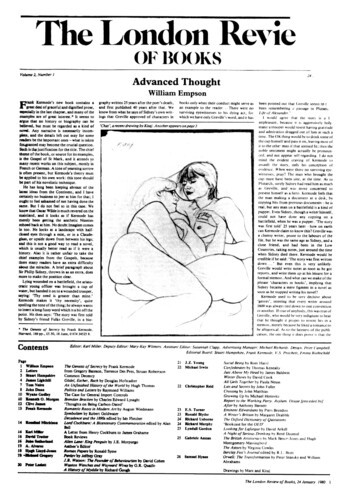Who prizes objectivity? Not Piers Brendon, who has had enough of long ‘photographic’ biographies and is all for ‘the irradiation of an epoch by means of sharp biographical vignettes’ in the Lytton Strachey tradition. ‘The camera’s lens reflects verisimilitude,’ he writes, ‘whereas the prism of the artist’s imagination refracts truth.’
Is refracted truth a good thing? If it is refracted, is it still truth? One is reminded of the publisher who, not so long ago, defended a book about life in an English village by saying that it consisted of ‘facts modified by the creative imagination’ and ‘in the last resort’ dealt ‘not with facts but with truth’. One thinks also of James Agate, who described not what happened but what he thought should have happened and called it ‘the higher truth’.
Strachey, it seems, was not above inventing a ‘fact’ – he gave Dr Arnold short legs to make him look sillier. In Eminent Edwardians Dr Brendon does not stoop to such tricks. If he refracts the truth it is by diverting the light of knowledge onto one side of the subject: the ridiculous side. Whether in the process he irradiates the epoch he regards as callow is another matter. His four subjects – Northcliffe, Balfour, Emmeline Pankhurst and Baden-Powell – are Edwardians only in the sense that their long lives spanned the nine years of Edward’s reign; their major achievements do not necessarily lie in that period. All of them are described by the author as ‘monstrous’ personalities. (Scott, the explorer, would have made a useful fifth, but he is being taken apart elsewhere.)
Dr Brendon is lively, free-ranging, provocative, full of fun, and determined not to distress the reader with the apparatus of scholarship; his text is uncluttered with those pettifogging numerals which are the key to sources; there are no notes, nor is there an index. If the reader wants to know who described Balfour as ‘shivering in philosophic doubt on the steps of a metaphysical bathing-machine’, he must look elsewhere: we are merely told that it was a ‘contemporary’, possibly the same contemporary who called Balfour ‘a silk-skinned sybarite whose rest a crumpled rose-leaf would disturb’. Dr Brendon reaps a whole crop of quotations which make Balfour look like a latter-day Sporus (his own adjectives include ‘epicene’ and ‘androgynous’). It is when he invents his own witticisms that the trouble starts. Balfour was no Moses, but was he perhaps ‘an airy-fairy Aaron, a Janus-like Joshua’? The ‘Souls’ who sneered at him ‘cared more about solecisms than souls; the ladies were not much less interested in parasols.’ It is the same throughout. Hearst and Northcliffe were like Kane and Able. Mrs Pankhurst was ‘a petticoated Parnell, a Savonarola in silk stockings’. She ‘resembled a virgin rather than a virago’: but how does one resemble a virgin?
It would be easier to overlook this callowness if Dr Brendon had not chosen to censure Northcliffe for ‘puerile puns’ and Balfour for ‘fiddling with words’. Harder to forgive are the crass sexual allusions. The suffragettes were ‘a castrating threat’ to men. ‘It did not require a Freud to see the ballot box, with its suggestive orifice, as a symbol of man’s sovereign promiscuity.’ Forcible feeding of suffragettes is, of course, rape. There are predictable sneers about the pleasures of flogging black men. And there is a throwaway line about incest: ‘the ultimate expression of social snobbery’. Try that on the judges who deal with it.
The best of the four essays is probably that on Balfour, if only because it is likely to make the reader want to know a good deal more about him, and to wonder how such an effete ninny ever coped at Number Ten. Of Northcliffe, who once saved the Times, Dr Brendon tells us little which cannot be found in the many existing lives. Certainly all his failings and shallownesses are paraded here. We are told that he thought there was nothing in Spiritualism, but that ‘all the same he had an uneasy feeling that the “Unseen Hand” was keeping an eye on him.’ This suggests that the Unseen Hand was the Almighty. In fact, the Unseen Hand was the name given to the supposed Germanophile conspiracy in Britain in 1914-18 and Northcliffe was one of the many deluded publicists who believed in it.
Criticism of Baden-Powell, as the author notes, was ‘held in check by the longevity of Lady Baden-Powell, who guarded her husband’s reputation fiercely’. What a nuisance those old widows are! Now B.-P. can be called a liar and worse. Ridicule of the founder of Scouting must naturally be extended to Scouts. They ‘littered parks with the remnants of paper chases’, ‘set fire to the countryside’, ‘chopped down trees’, ‘floated out to sea on rafts’, ‘acted as blacklegs in strikes’ and ‘inflicted good turns on the healthy’. An example of a good turn? ‘One man was informed by an obliging Scout that his wife was committing adultery.’
It must not be supposed that Dr Brendon never finds aspects of his subjects to praise. He even has the grace (or gall) to say that in their eagerness to dash Baden-Powell from his pedestal critics have been ‘unwarrantably iconoclastic’: he was, for instance, no more inept as a military commander than his Boer War contemporaries – which is praise indeed. While in this clement mood Dr Brendon asks: ‘Who shall debunk the debunkers?’ There’s an idea there for his next book.
Send Letters To:
The Editor
London Review of Books,
28 Little Russell Street
London, WC1A 2HN
letters@lrb.co.uk
Please include name, address, and a telephone number.

